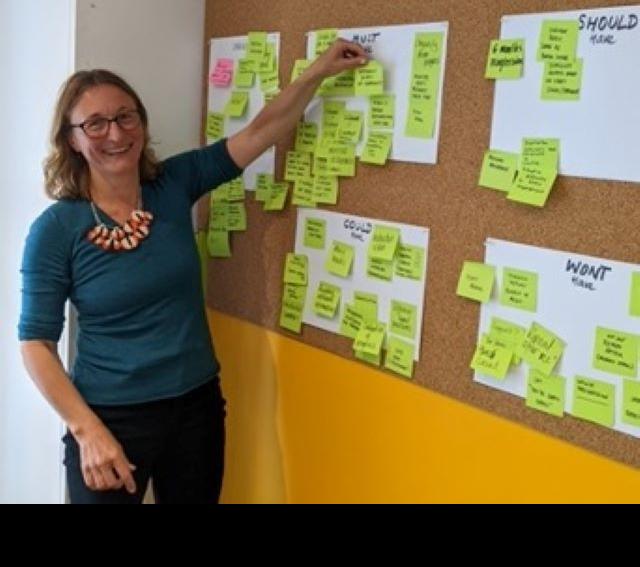
Welsh researchers develop interactive drumming app to help people living with Huntington's disease
12 May
To mark International Huntington’s Disease Awareness Week (11 – 17 May), Welsh researchers funded by Health and Care Research Wales have developed a novel rhythmic drumming app in the hope of improving movement and cognitive abilities in people living with the disease.
A study led by Dr Claudia Metzler-Baddeley aims to delay the onset of symptoms of Huntington’s disease and improve the quality of life for people with the condition and that of their families.
Thanks to grant funding for the project, Dr Metzler-Baddeley - a Reader in Cognitive Neuroscience at Cardiff University - is now able to continue her research into Huntington’s disease with a controlled study in larger scale.
Dr Metzler-Baddeley’s previous pilot studies in 2014 and 2020 suggested that two months of Bongo drumming intervention may improve concentration and strengthen brain connections. In these studies, people with Huntington’s disease were asked to drum along to audio instructions of drumming sequences involving different rhythmic patterns.
Dr Metzler-Baddeley said: “People would tell us that they had better hand coordination. However, these pilot findings were very preliminary, and we need to test it in larger groups under more controlled conditions.”
Huntington’s disease is an inherited condition that causes cell loss in brain regions important for thinking, movement and mood.
She explained:
Huntington’s disease runs in families because it's a dominant gene, so you'll have a 50 per cent chance of inheriting it. It affects not only movement, but also cognition, mood, and personality, with devastating effects on the quality of life for the person with the disease and their families.
Dr Metzler-Baddeley said that drumming involves the learning, planning, and execution of rhythmic movement patterns, and requires key abilities of concentration, planning and multi-tasking.
The drumming app that she has developed, HD-DRUM, is aimed at helping to train these key abilities.
She added: “In HD-DRUM, participants are shown how to play on two virtual drums - a blue triangle and a red circle - on a tablet. As people progress through the programme, the patterns will gradually get longer and faster with background music.
“Participants practise until they reach a level of competency before they can unlock the next level in order to keep the training engaging.”
Dr Metzler-Baddeley will assign 50 people with Huntington’s disease into either the intervention for drumming training or a standard-care control group.
She added: “In our study, participants in the HD-DRUM group will bring home a tablet with the app. They are asked to train at home for 10 minutes, five days per week, for two months. People in the control group will simply continue their normal activities for two months.
“Participants will be assessed for their thinking and movement abilities and their brain structure before and after the training.”
There are currently no NHS services that can alter the progression of changes in movement and cognitive process in patients who have neurological conditions such as Huntington’s disease. Dr Metzler-Baddeley hopes to find out from her study whether people enjoy the HD-DRUM training and if it is beneficial to them.
She added:
HD-DRUM may be able to provide a remotely accessible and cost-effective training tool to help maintain or improve movement and thinking in people with Huntington’s disease without any harmful side effects.
Even a small delay in symptoms due to the strengthening of brain connections and functions would have direct and significant benefits for the quality of life of people with the disease and their families.”
Each day, there is a lot of amazing research going on in Wales, sign up now for our weekly bulletin to find out more.